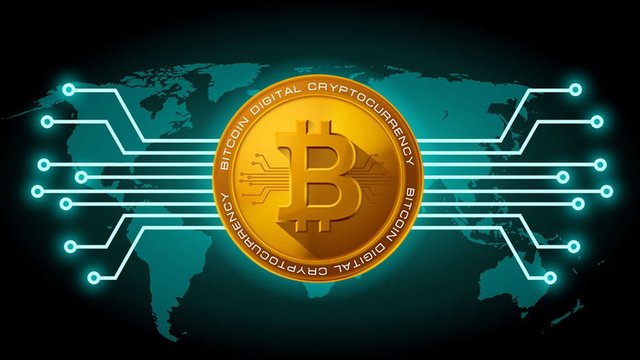The risks of using bitcoin. (important)
In accordance with the Bank of the Republic, Law 31 of 1992 establishes that the peso is the only means of payment of legal tender with unlimited liberating power. Consequently, Bitcoin "is not an asset that has equivalence to the legal currency of legal tender in Colombia because it has not been recognized as a currency in the country".
That is why the entity came out to communicate the risks that people incur when they make transactions with these elements, then we list them for you to take them into account:

• The "virtual currencies" are not backed by physical assets, by a central bank, nor the assets or reserves of said authority, so the exchange value of the same could be drastically reduced and even reach zero. Therefore, people are exposed to high volatilities in the price of the instrument, given the widespread speculation that remains.
• None of the transactional platforms, nor marketers of "virtual currencies" such as Bitcoin, are regulated by Colombian law, nor are they subject to the control, surveillance or inspection of this Superintendency. standards or safe processes and risk mitigation, so that regularly present failures that lead to the users of them incur losses.
An example of the above is evidenced by MT. Gox, one of the known transactional platforms of virtual currency, which closed recently, generating large losses to users.
• Transactional platforms are domiciled in multiple jurisdictions, so their regulation and surveillance also falls outside the scope of Colombian law. Likewise, the counterparts of the transactions may not be subject to national jurisdiction.
• The transactions on the platforms are anonymous, so the use of "virtual currencies" can be provided to carry out illicit or fraudulent activities, including unauthorized fundraising, money laundering and terrorist financing. According to public information disclosed in the media, some administrators of transactional platforms and portals selling merchandise that have been using "virtual currencies" as a means of payment for operations have been accused of behavior related to their use. given to these instruments.
• Buyers or sellers of "virtual currencies" are exposed to operational risks, mainly because digital wallets are stolen (hacked), as has already happened; and that unauthorized or incorrect transactions can not be reversed.
• People who negotiate with "virtual currencies" are not covered by any type of private or state guarantee, nor are their operations susceptible to coverage by the deposit insurance.
• People who admit "virtual currencies" in their operations must bear in mind that their acceptance could cease at any time, because people are not legally obliged to trade or recognize them as a means of payment.
• There are no mechanisms to enforce compliance with transactions with "virtual currencies", which significantly increases the possibility of materializing a default risk.
Finally, the Financial Superintendency recalls that the entities monitored are not authorized to guard, invest, or intermediate with these instruments. Additionally, it is up to the people to know and assume the risks inherent to the operations they carry out with the "virtual currencies".
• None of the transactional platforms, nor marketers of "virtual currencies" such as Bitcoin, are regulated by Colombian law, nor are they subject to the control, surveillance or inspection of this Superintendency. standards or safe processes and risk mitigation, so that regularly present failures that lead to the users of them incur losses.
An example of the above is evidenced by MT. Gox, one of the known transactional platforms of virtual currency, which closed recently, generating large losses to users.
• Transactional platforms are domiciled in multiple jurisdictions, so their regulation and surveillance also falls outside the scope of Colombian law. Likewise, the counterparts of the transactions may not be subject to national jurisdiction.
• The transactions on the platforms are anonymous, so the use of "virtual currencies" can be provided to carry out illicit or fraudulent activities, including unauthorized fundraising, money laundering and terrorist financing. According to public information disclosed in the media, some administrators of transactional platforms and portals selling merchandise that have been using "virtual currencies" as a means of payment for operations have been accused of behavior related to their use. given to these instruments.
• Buyers or sellers of "virtual currencies" are exposed to operational risks, mainly because digital wallets are stolen (hacked), as has already happened; and that unauthorized or incorrect transactions can not be reversed.
• People who negotiate with "virtual currencies" are not covered by any type of private or state guarantee, nor are their operations susceptible to coverage by the deposit insurance.
• People who admit "virtual currencies" in their operations must bear in mind that their acceptance could cease at any time, because people are not legally obliged to trade or recognize them as a means of payment.
• There are no mechanisms to enforce compliance with transactions with "virtual currencies", which significantly increases the possibility of materializing a default risk.
Finally, the Financial Superintendency recalls that the entities monitored are not authorized to guard, invest, or intermediate with these instruments. Additionally, it is up to the people to know and assume the risks inherent to the operations they carry out with the "virtual currencies".